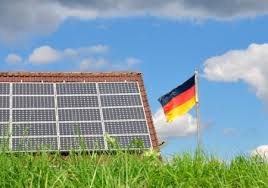The new amendments to Germany’s Renewable Energy Act are expected to become law in August, and one main goal is to prevent one of the most severe – and non-existent – effects of the Energiewende: industry being scared out of the country. New figures from Deutsche Bank show how much German industry is suffering.
 As everyone knows, one main goal of Germany’s energy transition is to ruin the economy – at least, that’s the impression I get reading international reports. But judging from the latest data published by Deutsche Bank (PDF), the Energiewende is failing to drive business out of the country.
As everyone knows, one main goal of Germany’s energy transition is to ruin the economy – at least, that’s the impression I get reading international reports. But judging from the latest data published by Deutsche Bank (PDF), the Energiewende is failing to drive business out of the country.
“Capacity utilization is high at present,” the analysts write, adding that “manufacturing output in Germany looks set to grow by four percent in real terms in the full year” of 2014. Exports to Western Europe are picking up, but Deutsche Bank says global growth is sluggish – though that is keeping inflation down at 1.1 percent in the first half of 2014, despite the “good labor market situation.”


“Moreover, in light of various government decisions (such as higher pensions) or high energy prices, some companies will probably show restraint when it comes to investment in Germany. As a result, employment growth in industry also looks hardly likely…. However, one needs to bear in mind that the number of employees in German industry currently is more than 7% higher than at its low point of spring 2010, and in a longer-term comparison is high overall.”
By sector, “German industry has become more dependent on the automotive industry,” with mechanical engineering and chemicals having “a disappointing start to the year.” The only reason given for mechanical engineering was lower trade with Russia.
Source: Renewables International. Reproduced with permission.










